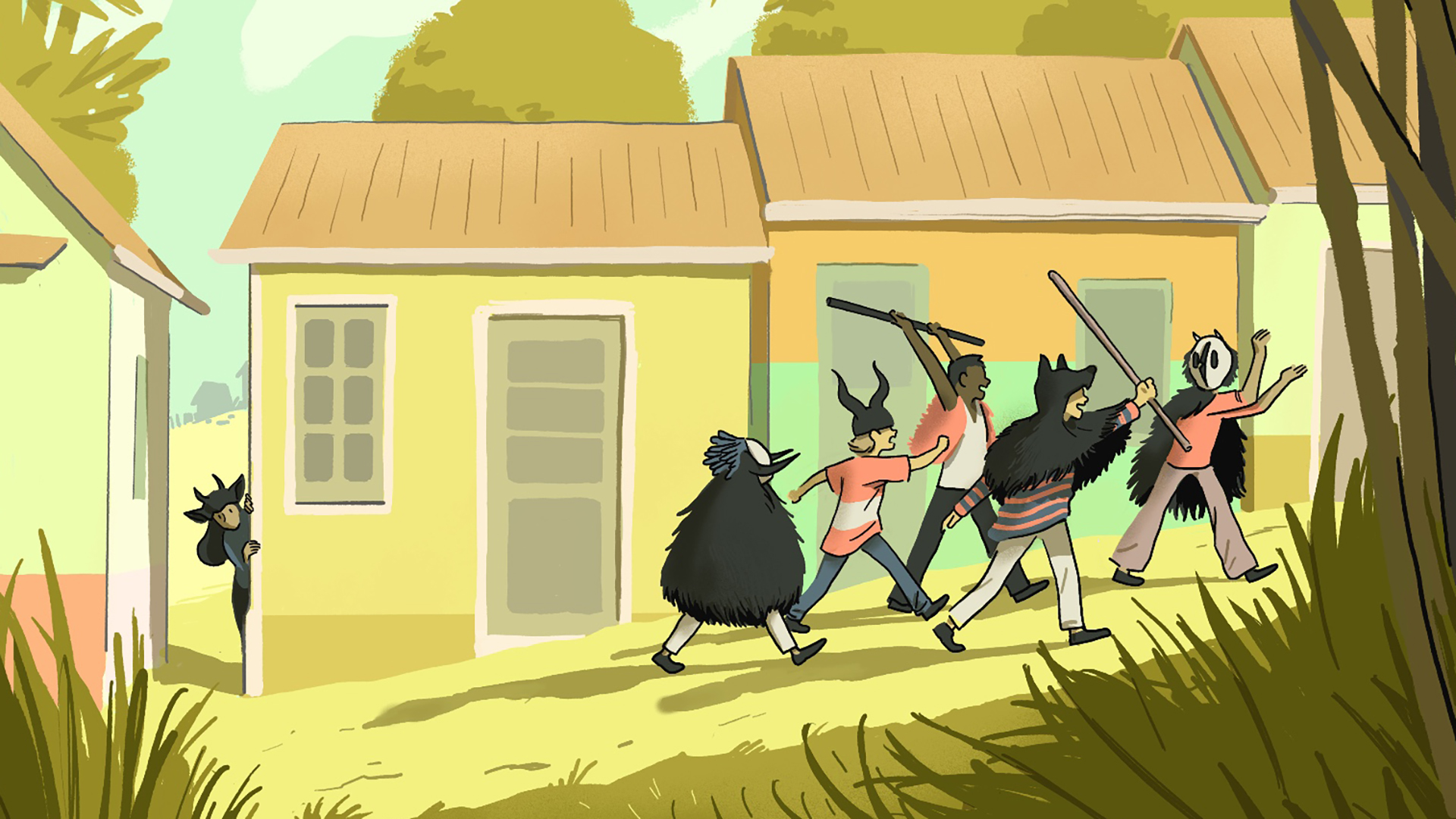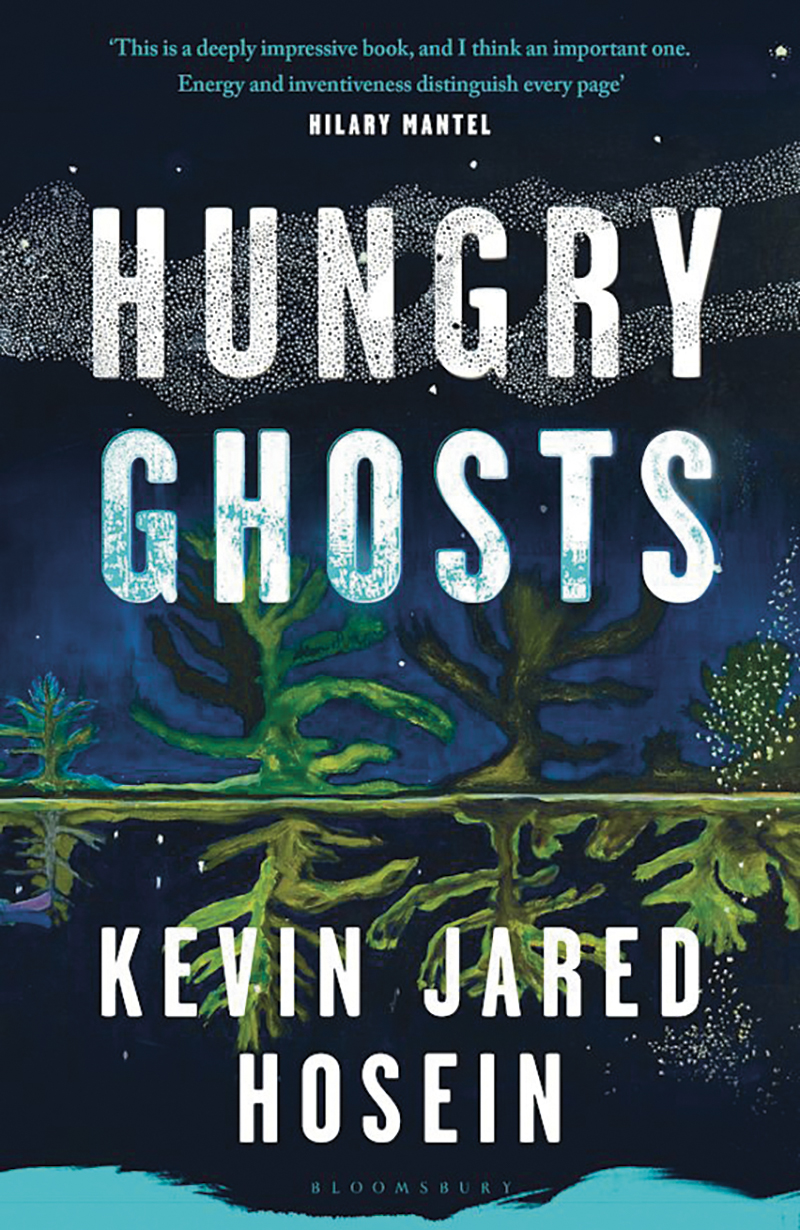We dressed like devils and monsters on the mornings of Carnival Monday. We, the youthful cousins and comrades of a small rural village in central Trinidad, four streets wide. Where pastel-hued flags flapped from bamboo poles and radios were tuned to Jagjit Singh and Lata Mangeshkar. I wore a werewolf mask my mother bought me in the flea market. We wore billowing shirts that shifted form in the breeze. Our grandparents gave us broomsticks and we’d go door to door tapping the pavement, chanting rhymes, demanding coins in exchange for quiet. This was a Caribbean game, jab-jab. Most grown-ups played along. We knew which houses to go to – we were good at it! At the end of the morning, we lined up at the kiosk – or parlour, as we call it. The coins were enough for a few chocolates or two rounds of the Samurai Showdown arcade cabinet.
Though we inhabited the roles of runts and wretches, we still had to adhere to the rules of the adults. Don’t venture beyond the four streets. Behind the unkempt grass was the squatters’ settlement. Non-villagers, non-overlapping personas non grata. The last year I participated in jab-jab, I must have been 10. Our group was joined by a little girl whom we all assumed was someone’s sister. It was only when it was over that we realised from where she had come. From the beyond. We spent our coins on the usual confectionaries. She’d used hers for bread before disappearing back to the squatters’ settlement.
I kept that child in mind when writing Hungry Ghosts, having to transform herself into an imp to be passed some bread money. It was only years later, after long conversations, that I had some context of the divide. Most of those squatters had been descendants of indentured Indian labourers who were too drunk to think about the future, was how it was worded to me. Myopically, they had invested their stipends in rum instead of land. Eventually, their abodes, whether they be shanty or barrack, gave way to nature and they found themselves along the wild fringes of villages. Like remora fish to sharks.
Of course, there is greater historical context to this, involving British colonial authorities, systemic discrimination and psychological traumas. You didn’t learn of such things at school. Just that the indentured all jumped on some boats one day back in Calcutta to work on the canefields. Not of death and hereditary damage. And surely not of religious discrimination – to be Hindu back then might as well have been to be Martian. The East Indian community may not immediately come to mind when the Caribbean is mentioned.
- Fighting the shameful legacy of colonialism in the Chagos Islands
- Homelands by Chitra Ramaswamy review: A gripping novel about heritage, exile, friendship and family
- My Windrush friend Stewart taught me how to oppose racism
To live in the modern Caribbean is to occupy duality. Here, we exist in tenets both conservative and liberal. Today, your soul explodes on the pews in psalms and canticles. Tomorrow, it does so with fete klaxons and gyrating waists. And it does so acceptably, without cries of hypocrisy or duplicity. On these rocks, it is always the best of times and the worst of times. You wish to flee these rocks yet remain fastened to your roots. You can code-switch between standard English and the Creole vernacular at the drop of a pin – like now how I could ups and write my home tongue dry-so in de British people dem publications.
Hungry Ghosts isn’t set in that modern Caribbean, however. In the 1940s, we’re still trying to figure ourselves out. Another type of duality exists on the island. We have the British – bureaucratic, detached, unapproachable, punctilious. They populate offices and warehouses and country clubs. Then we have the American navy – loud and laissez-faire, unconventional and uncontrollable. They’re here to sniff out a supposed Nazi threat and so occupy the ports and bases in the capital. Between these two superpowers are the locals, still trying to carve their own identity. This is a novel about that time and about taking what you could to forge forth. A mystery wrapped in the enigma of an island, drawn from oral traditions, about people who live on streets with no names. The ones othered and abandoned by the status quo.










